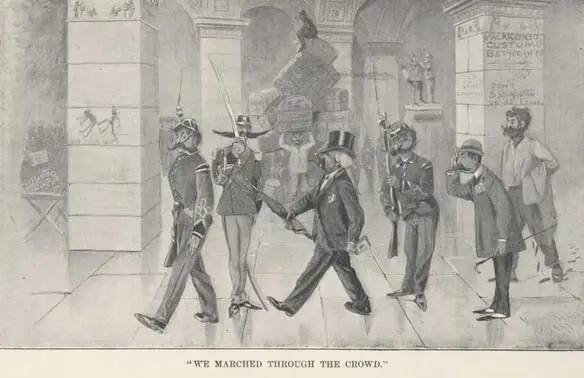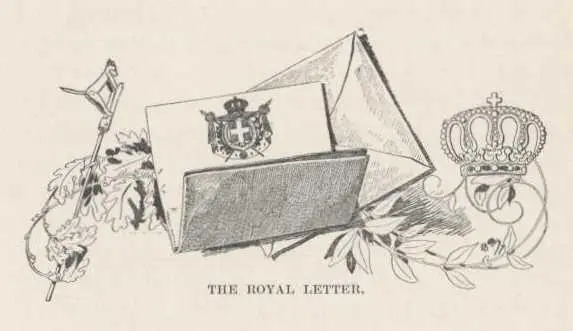Mark Twain - Following the Equator
Здесь есть возможность читать онлайн «Mark Twain - Following the Equator» весь текст электронной книги совершенно бесплатно (целиком полную версию без сокращений). В некоторых случаях можно слушать аудио, скачать через торрент в формате fb2 и присутствует краткое содержание. Год выпуска: 2004, Жанр: Классическая проза, Юмористическая проза, на английском языке. Описание произведения, (предисловие) а так же отзывы посетителей доступны на портале библиотеки ЛибКат.
- Название:Following the Equator
- Автор:
- Жанр:
- Год:2004
- ISBN:нет данных
- Рейтинг книги:3 / 5. Голосов: 1
-
Избранное:Добавить в избранное
- Отзывы:
-
Ваша оценка:
- 60
- 1
- 2
- 3
- 4
- 5
Following the Equator: краткое содержание, описание и аннотация
Предлагаем к чтению аннотацию, описание, краткое содержание или предисловие (зависит от того, что написал сам автор книги «Following the Equator»). Если вы не нашли необходимую информацию о книге — напишите в комментариях, мы постараемся отыскать её.
Following the Equator — читать онлайн бесплатно полную книгу (весь текст) целиком
Ниже представлен текст книги, разбитый по страницам. Система сохранения места последней прочитанной страницы, позволяет с удобством читать онлайн бесплатно книгу «Following the Equator», без необходимости каждый раз заново искать на чём Вы остановились. Поставьте закладку, и сможете в любой момент перейти на страницу, на которой закончили чтение.
Интервал:
Закладка:
We arrived, and pressed with the crowd into the immense custom-house, and the usual worries began; everybody crowding to the counter and begging to have his baggage examined first, and all hands clattering and chattering at once. It seemed to me that I could do nothing; it would be better to give it all up and go away and leave the baggage. I couldn't speak the language; I should never accomplish anything. Just then a tall handsome man in a fine uniform was passing by and I knew he must be the station-master—and that reminded me of my letter. I ran to him and put it into his hands. He took it out of the envelope, and the moment his eye caught the royal coat of arms printed at its top, he took off his cap and made a beautiful bow to me, and said in English:
"Which is your baggage? Please show it to me."
I showed him the mountain. Nobody was disturbing it; nobody was interested in it; all the family's attempts to get attention to it had failed—except in the case of one of the trunks containing the dutiable goods. It was just being opened. My officer said:
"There, let that alone! Lock it. Now chalk it. Chalk all of the lot. Now please come and show me the hand-baggage."
He plowed through the waiting crowd, I following, to the counter, and he gave orders again, in his emphatic military way:
"Chalk these. Chalk all of them."
Then he took off his cap and made that beautiful bow again, and went his way. By this time these attentions had attracted the wonder of that acre of passengers, and the whisper had gone around that the royal family were present getting their baggage chalked; and as we passed down in review on our way to the door, I was conscious of a pervading atmosphere of envy which gave me deep satisfaction.
But soon there was an accident. My overcoat pockets were stuffed with German cigars and linen packages of American smoking tobacco, and a porter was following us around with this overcoat on his arm, and gradually getting it upside down. Just as I, in the rear of my family, moved by the sentinels at the door, about three hatfuls of the tobacco tumbled out on the floor. One of the soldiers pounced upon it, gathered it up in his arms, pointed back whence I had come, and marched me ahead of him past that long wall of passengers again—he chattering and exulting like a devil, they smiling in peaceful joy, and I trying to look as if my pride was not hurt, and as if I did not mind being brought to shame before these pleased people who had so lately envied me. But at heart I was cruelly humbled.

When I had been marched two-thirds of the long distance and the misery of it was at the worst, the stately station-master stepped out from somewhere, and the soldier left me and darted after him and overtook him; and I could see by the soldier's excited gestures that he was betraying to him the whole shabby business. The station-master was plainly very angry. He came striding down toward me, and when he was come near he began to pour out a stream of indignant Italian; then suddenly took off his hat and made that beautiful bow and said:
"Oh, it is you! I beg a thousands pardons! This idiot here—-" He turned to the exulting soldier and burst out with a flood of white-hot Italian lava, and the next moment he was bowing, and the soldier and I were moving in procession again—he in the lead and ashamed, this time, I with my chin up. And so we marched by the crowd of fascinated passengers, and I went forth to the train with the honors of war. Tobacco and all.

CHAPTER XXI.
Man will do many things to get himself loved, he will do all things to get himself envied.
—Pudd'nhead Wilson's New Calendar.
The "Weet-Weet"—Keeping down the Population—Victoria—Killing the Aboriginals—Pioneer Days in Queensland—Material for a Drama—The Bush—Pudding with Arsenic—Revenge—A Right Spirit but a Wrong Method—Death of Donga Billy
Before I saw Australia I had never heard of the "weet-weet" at all. I met but few men who had seen it thrown—at least I met but few who mentioned having seen it thrown. Roughly described, it is a fat wooden cigar with its butt-end fastened to a flexible twig. The whole thing is only a couple of feet long, and weighs less than two ounces. This feather—so to call it—is not thrown through the air, but is flung with an underhanded throw and made to strike the ground a little way in front of the thrower; then it glances and makes a long skip; glances again, skips again, and again and again, like the flat stone which a boy sends skating over the water. The water is smooth, and the stone has a good chance; so a strong man may make it travel fifty or seventy-five yards; but the weet-weet has no such good chance, for it strikes sand, grass, and earth in its course. Yet an expert aboriginal has sent it a measured distance of two hundred and twenty yards. It would have gone even further but it encountered rank ferns and underwood on its passage and they damaged its speed. Two hundred and twenty yards; and so weightless a toy—a mouse on the end of a bit of wire, in effect; and not sailing through the accommodating air, but encountering grass and sand and stuff at every jump. It looks wholly impossible; but Mr. Brough Smyth saw the feat and did the measuring, and set down the facts in his book about aboriginal life, which he wrote by command of the Victorian Government.
What is the secret of the feat? No one explains. It cannot be physical strength, for that could not drive such a feather-weight any distance. It must be art. But no one explains what the art of it is; nor how it gets around that law of nature which says you shall not throw any two-ounce thing 220 yards, either through the air or bumping along the ground. Rev. J. G. Woods says:
"The distance to which the weet-weet or kangaroo-rat can be thrown is truly astonishing. I have seen an Australian stand at one side of Kennington Oval and throw the kangaroo rat completely across it." (Width of Kennington Oval not stated.) "It darts through the air with the sharp and menacing hiss of a rifle-ball, its greatest height from the ground being some seven or eight feet . . . . . . When properly thrown it looks just like a living animal leaping along . . . . . . Its movements have a wonderful resemblance to the long leaps of a kangaroo-rat fleeing in alarm, with its long tail trailing behind it."
The Old Settler said that he had seen distances made by the weet-weet, in the early days, which almost convinced him that it was as extraordinary an instrument as the boomerang.
There must have been a large distribution of acuteness among those naked skinny aboriginals, or they couldn't have been such unapproachable trackers and boomerangers and weet-weeters. It must have been race-aversion that put upon them a good deal of the low-rate intellectual reputation which they bear and have borne this long time in the world's estimate of them.
They were lazy—always lazy. Perhaps that was their trouble. It is a killing defect. Surely they could have invented and built a competent house, but they didn't. And they could have invented and developed the agricultural arts, but they didn't. They went naked and houseless, and lived on fish and grubs and worms and wild fruits, and were just plain savages, for all their smartness.
With a country as big as the United States to live and multiply in, and with no epidemic diseases among them till the white man came with those and his other appliances of civilization, it is quite probable that there was never a day in his history when he could muster 100,000 of his race in all Australia. He diligently and deliberately kept population down by infanticide—largely; but mainly by certain other methods. He did not need to practise these artificialities any more after the white man came. The white man knew ways of keeping down population which were worth several of his. The white man knew ways of reducing a native population 80 percent. in 20 years. The native had never seen anything as fine as that before.
Читать дальшеИнтервал:
Закладка:
Похожие книги на «Following the Equator»
Представляем Вашему вниманию похожие книги на «Following the Equator» списком для выбора. Мы отобрали схожую по названию и смыслу литературу в надежде предоставить читателям больше вариантов отыскать новые, интересные, ещё непрочитанные произведения.
Обсуждение, отзывы о книге «Following the Equator» и просто собственные мнения читателей. Оставьте ваши комментарии, напишите, что Вы думаете о произведении, его смысле или главных героях. Укажите что конкретно понравилось, а что нет, и почему Вы так считаете.











